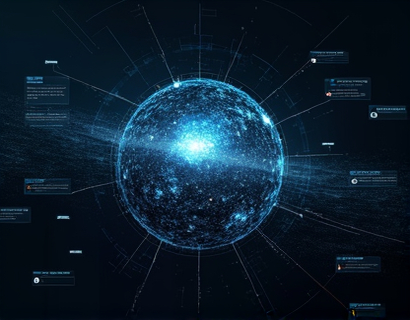Revolutionizing Calculus Education: The Power of AI-Driven Learning
In the digital age, the landscape of education is rapidly evolving, particularly in the realm of advanced subjects like calculus. Traditional methods of teaching calculus, while effective for many, often fall short in catering to the diverse learning needs of students. The integration of Artificial Intelligence (AI) into calculus learning represents a significant leap forward, offering personalized, interactive, and accessible educational experiences. This article delves into the transformative potential of AI-powered calculus learning, focusing on how specialized insights and child-friendly access can enhance the educational journey for students and educators alike.
The Role of AI in Calculus Education
AI technology, particularly in the form of intelligent chat platforms, is reshaping how calculus is taught and learned. These platforms leverage machine learning algorithms to provide accurate, verified, and contextually relevant information. For students, this means having a constant and reliable resource at their fingertips, capable of explaining complex concepts in a step-by-step manner. Educators can also benefit from these tools, using AI to supplement their teaching with additional resources and insights.
The core advantage of AI in calculus education lies in its ability to adapt to individual learning paces and styles. By analyzing user interactions, the AI can tailor explanations and examples to better suit each student's understanding. This personalized approach not only enhances comprehension but also boosts confidence and engagement. For instance, a student struggling with integration techniques can receive customized examples and practice problems, ensuring a solid grasp of the concept before moving on.
Specialized Insights for Advanced Learning
Calculus is a subject rich with specialized topics and advanced theories. AI-powered platforms can offer in-depth insights into these areas, making them more accessible to students who are eager to delve deeper. From differential equations to multivariable calculus, the AI can provide detailed explanations, historical context, and real-world applications. This comprehensive approach ensures that students not only learn the mechanics of calculus but also understand its broader significance and utility.
One of the key features of AI-driven calculus learning is the ability to connect disparate concepts. For example, the AI can illustrate how calculus is used in physics to describe motion, or in economics to model growth and decay. By drawing these connections, students gain a more holistic understanding of the subject, fostering a deeper appreciation for its relevance in various fields.
Child-Friendly Access and Safety
Ensuring that AI-powered calculus learning is accessible to young learners is crucial. A child-friendly version of the platform is designed with safety and usability in mind. This version features a simplified interface, age-appropriate language, and interactive elements that make learning engaging and fun. The AI can present complex ideas through visual aids, animations, and gamified exercises, which are particularly effective for younger students.
Safety is a paramount concern when designing educational tools for children. The child-friendly version of the AI platform adheres to strict data protection standards, ensuring that user information is secure and private. Parental controls and monitoring features allow guardians to oversee their child's learning journey, providing peace of mind. Additionally, the content is curated to be free from inappropriate or complex material, creating a safe and supportive learning environment.
Interactive Learning Experiences
Interactivity is a cornerstone of effective learning, and AI-powered calculus platforms excel in this aspect. Students can engage with the AI through natural language queries, asking questions and receiving immediate, accurate responses. This interactive approach not only reinforces learning but also encourages critical thinking and problem-solving skills. For example, a student can ask the AI to explain the process of finding the derivative of a function, and the AI can walk through the steps, providing visual aids to illustrate each part of the process.
Moreover, the AI can facilitate collaborative learning by connecting students with similar interests or skill levels. Online study groups and discussion forums can be moderated by the AI to ensure a productive and respectful environment. This fosters a sense of community and support, which is essential for students tackling challenging subjects like calculus.
Verified and Reliable Information
One of the most significant advantages of AI-powered learning platforms is the commitment to providing verified and reliable information. Unlike traditional textbooks or online resources that may contain outdated or incorrect data, AI systems can cross-reference information from multiple trusted sources. This ensures that students receive accurate and up-to-date content, which is crucial for subjects like calculus where precision is paramount.
The AI can also track the latest developments in calculus research and education, integrating new findings and methodologies into its database. This continuous update mechanism ensures that the platform remains a cutting-edge resource, keeping students and educators informed about the latest advancements in the field.
Supporting Educators in the Classroom
Teachers play a vital role in calculus education, and AI-powered tools can significantly enhance their effectiveness. The AI can serve as a valuable resource for educators, offering lesson plans, teaching strategies, and assessment tools. By analyzing student performance data, the AI can provide insights into areas where students are struggling, allowing teachers to tailor their instruction accordingly.
Additionally, the AI can assist in grading and providing feedback on assignments, freeing up time for teachers to focus on more hands-on, personalized teaching. This symbiotic relationship between AI and educators can lead to improved learning outcomes and a more efficient use of classroom resources.
Case Studies and Success Stories
Several educational institutions have already begun integrating AI-powered calculus learning into their curricula, with promising results. For instance, a high school in the United States implemented an AI chat platform to support its calculus students. Within a semester, students reported a significant improvement in their understanding of complex topics and a greater willingness to engage with the material. Teachers noted that the AI provided valuable insights and helped identify areas where students needed additional support.
Another example is a university-level calculus course that incorporated AI-driven tutoring sessions. Students who used the AI platform consistently showed higher test scores and better retention of material compared to those who relied solely on traditional study methods. These success stories highlight the potential of AI to transform calculus education, making it more accessible and effective for a wide range of learners.
Future Prospects and Challenges
As AI technology continues to advance, the possibilities for calculus learning are vast. Future developments may include more sophisticated natural language processing, enabling even more intuitive and human-like interactions. The integration of augmented reality (AR) and virtual reality (VR) could further enhance the learning experience, allowing students to visualize and interact with calculus concepts in immersive environments.
However, there are challenges to consider, such as ensuring equitable access to these technologies and addressing potential biases in AI algorithms. It is essential for developers and educators to work together to create inclusive and fair AI-powered learning tools. Continuous evaluation and improvement will be key to overcoming these challenges and realizing the full potential of AI in calculus education.
Conclusion
The integration of AI into calculus learning represents a significant step forward in education, offering personalized, interactive, and reliable resources for students and educators. By providing specialized insights and ensuring child-friendly access, AI-powered platforms can make calculus more approachable and engaging. As this technology continues to evolve, it has the potential to democratize high-quality education, breaking down barriers and empowering learners of all backgrounds to succeed in this fundamental subject.









































